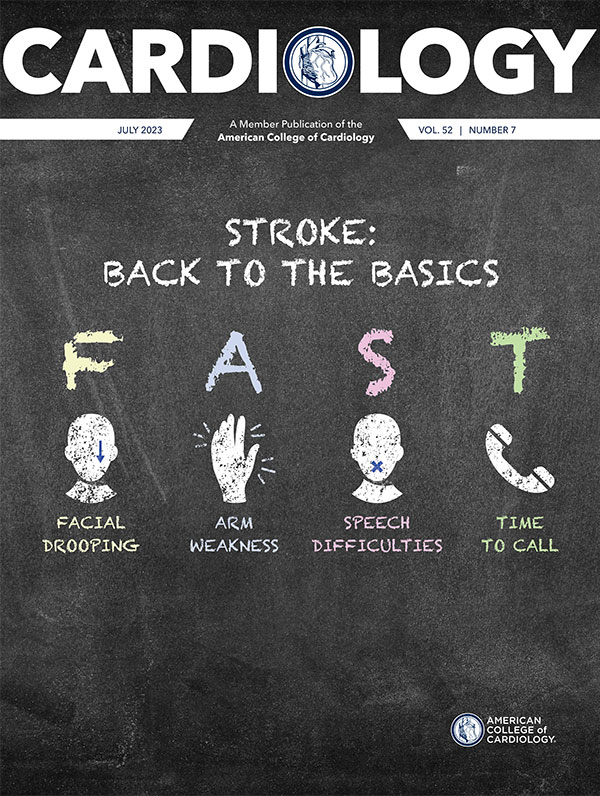Heart of Health Policy
ACC Joins NFL-Led Coalition Focused on Preventing SCA Deaths in Young Athletes

The ACC has joined The Smart Heart Sports Coalition convened by the National Football League (NFL) to advocate for the adoption of health policies that will prevent death from sudden cardiac arrest (SCA) among high school students through increased CPR education, access to automated external defibrillators (AEDs) and emergency action plan requirements.
More Information
Stay tuned to the ACC's weekly Advocate newsletter and ACC.org/Advocacy for news and updates on state and federal advocacy opportunities tied to CPR and AED legislation.
Looking to get involved in this and other sports cardiology-related activities? Click here to learn more and join the ACC's Sports and Exercise Cardiology Section.
Click here to read more about the coalition and access quick links to ACC SCA resources for both clinicians and patients.
"The ACC is putting its whole heart behind the Smart Heart Sports Coalition to ensure young athletes are protected from sudden cardiac death," said ACC's Chief Medical Officer Richard Kovacs, MD, MACC. "AEDs save lives and quick action from a prepared team can make the difference between a tragedy on the field and a young athlete who goes home to their family. No coach would let their team take the field without practice and a game plan to win, and the ACC believes the same applies to emergency response. The ACC is proud to join this team of organizations across sports and medicine to make real change. We're not doing enough until we ensure young athletes are safe and AEDs are accessible to all."
The Smart Heart Sports Coalition, which was founded this past March, brings together men's and women's professional sports leagues and leading public health, nonprofit and patient advocacy organizations to support state-level adoption of public policies to prevent fatal outcomes from SCA. Specifically, the coalition is seeking policies promoting these best practices:
- Emergency action plans for each high school athletic venue that are widely distributed, posted, rehearsed and updated annually
- Clearly marked AEDs at each athletic venue or within one to three minutes of each venue where high school practices or competitions are held
- CPR and AED education for coaches
Sports-related incidents account for nearly 40% of SCAs among people under the age of 18. Since the founding of the coalition in March, a number of states, including New Mexico, Kentucky and Indiana, have taken action to enact one or more of these evidence-based policies proven to prevent death from SCA. In addition, the coalition is engaging with policymakers in Ohio, Pennsylvania and Michigan, where legislatures are still in session. Currently only seven states have implemented all three policies, according to the Coalition.
"The addition of new partners to the coalition means more action, more impact and wider reach," said Jeff Miller, NFL executive vice president of communications, public affairs and policy. "We're looking forward to building upon our initial progress and continuing to advocate for these lifesaving measures at the state-level. At the NFL, our clubs and league as a whole remain committed to these efforts and to student athletes across the country."
"The ACC is both proud and honored to partner with the NFL in this critical mission to raise awareness on best practices for the management of SCA in young, competitive athletes," said Jonathan Kim, MD, FACC, chair of ACC's Sports and Exercise Cardiology Section. "Indeed, advocacy promoting education on SCA recognition and training in cardiopulmonary resuscitation, legislation for mandated emergency action planning and the presence of AEDs in all sporting venues is an important priority for the ACC and a core focus of the College's Sports and Exercise Cardiology Section. We are enthusiastically committed to working with stakeholders across the ACC and as part of the Smart Heart Sports Coalition to move these legislative efforts forward and ultimately save the lives of young athletes across the United States."
FDA Update: Sotagliflozin Approved For Broad HF Treatment
Related Resources
The U.S. Food and Drug Administration (FDA) on May 26 approved a new drug application submitted by Lexicon Pharmaceuticals, Inc., for sotagliflozin (Inpefa), the first dual SGLT1 and SGLT2 inhibitor for the treatment of heart failure (HF), including HF with preserved ejection fraction and HF with reduced ejection fraction.
The once-daily oral tablet is approved to reduce the risk of cardiovascular death, hospitalization for HF, and urgent HF visits in adult patients with HF or type 2 diabetes, chronic kidney disease and other cardiovascular risk factors. Approval was based on phase 3 results from the SCORED trial and the SOLOIST-WHF trial, the latter of which were presented at ACC.23/WCC in New Orleans.
Lexicon expects the new drug to be available by the end of June 2023. Click here to learn more. Click here to learn more about using SGLT2 inhibitors in clinical practice.
Six Tips For Successful Meetings With Lawmakers
Meetings with lawmakers, whether at the state or national level, are an impactful way to engage on health policy issues and provide first-hand expertise and perspectives on issues specifically impacting the delivery of high-quality cardiovascular care. ACC offers several opportunities to meet with lawmakers throughout the year, including in Washington, DC, as part of the College's annual Legislative Conference or as part of state lobby days coordinated alongside ACC State Chapters. The following are six tips to ensure that meetings are productive and insightful.

Clinical Topics: Arrhythmias and Clinical EP, Heart Failure and Cardiomyopathies, Sports and Exercise Cardiology, Implantable Devices, SCD/Ventricular Arrhythmias, Acute Heart Failure
Keywords: ACC Publications, Cardiology Magazine, Defibrillators, Cardiopulmonary Resuscitation, Heart Arrest, Athletes, Sodium-Glucose Transporter 2 Inhibitors, Cardiology, Stroke Volume, Diabetes Mellitus, Type 2, Cardiovascular Diseases, Risk Factors, Heart Failure, Ventricular Dysfunction, Left, Health Policy
< Back to Listings


